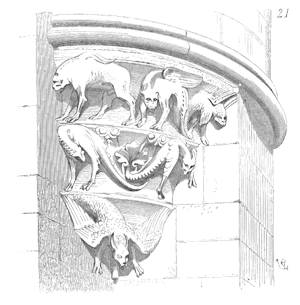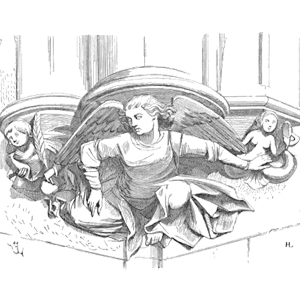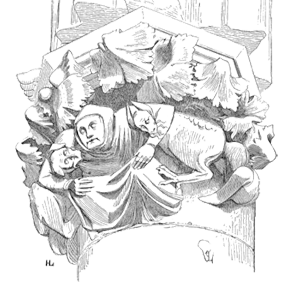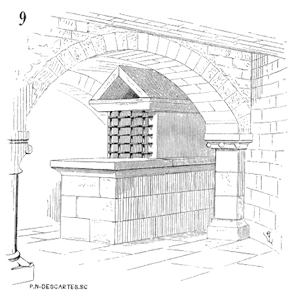Speaking Of Reliability: Friends Discussing Reliability Engineering Topics | Warranty | Plant Maintenance
Gain the experience of your peers to accelerate improvement of your program and career. Improve your product development process, reliability or warranty performance; or your plant uptime or asset performance. Learn about reliability and maintenance engineering practical approaches, skills, and techniques. Join the conversation today.
SOR 1142 Starting a New Reliability Team

Starting a New Reliability Team Abstract Chris and Fred discuss a few ideas on creating a reliability team in your organization. Key Points Join Chris and Fred as they discuss a few steps to consider when tasked with setting up a reliability team. Topics include: Do you really need a team? It’s about culture and […]
SOR 1141 Presenting Skills

Presenting Skills Abstract Carl and Fred share their experiences in presenting, what they have learned, what is most important in achieving excellent presentations. Key Points Join Carl and Fred, as they discuss the length and breadth of presenting. This is a large subject, so many different aspects are covered in the podcast. Topics include: Don’t […]
SOR 1140 Getting and Giving Feedback

Getting and Giving Feedback Abstract Carl and Fred discuss the role of receiving feedback in improving one’s ability to implement the various reliability tasks and methods. They also cover how to give feedback to others, so it is most meaningful. Key Points Join Carl and Fred as they continue to discuss the “soft” skills that […]
SOR 1139 Leaving a Team Better Off

Leaving a Team Better Off Abstract Mojan and Fred discuss how reliability engineers can be most supportive in organizations to enable the most value-extraction from them and the team. Key Points Building on the discussion from episode 1138, Mojan and Fred dive into the ultimate measure of a successful Reliability Engineer: making oneself redundant. They […]
SOR 1138 What is In it For Them

What is In it For Them Abstract Mojan and Fred discuss the benefits of Design for Reliability and how to demonstrate them. Key Points Join Mojan and Fred as they tackle the fundamental question in reliability engineering: How do you demonstrate the value of Design for Reliability (DfR) when the benefits are problems that never occurred? […]
SOR 1137 Podcast Listens

Podcast Listens Abstract Kirk and Fred discuss the almost 10 years of Speaking of Reliability podcasts and podcasting in general. Key Points Join Kirk and Fred as they discuss the world of podcasting and the data about listeners and podcast popularity. Topics include: Even though we can know how many subscribers downloaded our podcast, we […]
SOR 1136 Early Life Failures

Early Life Failures Abstract Kirk and Fred discuss the impact of early life failures on the customer Key Points Join Kirk and Fred as they discuss how failures after a customer starts to have confidence in a product it fails, is the most costly and frustrating for the customer Topics include: Out-of-the-box failures can be […]
SOR 1135 Pitfalls of Reliability Testing

Pitfalls of Reliability Testing Abstract Enrico and Fred discuss an array of problems that may arise with reliability testing. Key Points Join Enrico and Fred as they discuss reliability testing and problems that may leads to faulty results. Topics include: Accelerated testing and poor acceleration factor models Too few samples to get a meaningful result […]
SOR 1134 Build, Test, Fix

Build, Test, Fix Abstract Chris and Fred discuss the product design process commonly called build, test, fix. Key Points Join Chris and Fred as they discuss an approach to creating a new product and how relaibility happens. Topics include: Build early and often. Simulate concepts, model ideas, mock up concepts. Test early and to failure. […]
SOR 1133 Statistics and Reliability

Statistics and Reliability Abstract Chris and Fred discuss a listener’s question on whether or not to study statistics. Key Points Join Chris and Fred as they discuss the value of really understanding statistis as a reliability engineer. Topics include: A grand set of tools to grapple with the world’s variations. The ability to detect and […]
SOR 1132 AI & Reliability Use

AI & Reliability Use Abstract Philip and Fred discuss a few ideas around using AI for reliability work. Key Points Join Philip and Fred as they discuss how Philip has jumped into using AI for many reliability tasks. Topics include: Creating apps or scripts to accomplish routine tasks quickly Dealing with very, very large dataset […]
SOR 1131 Selecting Tests

Selecting Tests Abstract Dianna and Fred discuss the critical process of selecting appropriate reliability tests, maximizing value while avoiding the common pitfalls of over-testing or testing the wrong parameters. Key Points Join Dianna and Fred as they discuss selecting tests, maximizing value while avoiding the common pitfalls of over-testing or testing the wrong parameters. Topics […]
SOR 1130 Capturing Value

Capturing Value Abstract Dianna and Fred discuss capturing value, documenting the cost of unreliability, and speaking the language of management. Key Points Join Dianna and Fred as they discuss the often-overlooked necessity for reliability and quality engineers to quantify value, document the cost of unreliability, and speak the language of management. Topics include: Why quantifying […]
SOR 1129 Today’s New Reliability Challenge

Today’s New Reliability Challenge Abstract Mojan and Fred discuss the range of new challenges facing reliability engineering work. Key Points Join Mojan and Fred as they discuss today’s reliability challenges that face today’s reliability engineers and teams. Topics include: Many are challenges that rhythm with the challenges in the past, like shorter development times and […]
SOR 1128 Reliability ≠ Testing

Reliability ≠ Testing Abstract Mojan and Fred discuss the idea that a product’s reliability is not the same as doing reliability testing. Key Points Join Mojan and Fred as they discuss the importance of not confusing testing with a product’s actual reliability. Topics include: A product’s reliability exists whether or not we perform any testing. […]
SOR 1127 Understanding Assumptions

Understanding Assumptions Abstract Carl and Fred discuss why it essential for reliability engineers to understand the assumptions that go into any reliability activity. Key Points Join Carl and Fred as they discuss the broad subject of assumptions. What are they? When are they needed? Why are they important? Topics include: How often do assumptions go […]
SOR 1126 Good and Bad Meetings

Good and Bad Meetings Abstract Carl and Fred discuss what makes some meetings really useful and others a waste of time. Key Points Join Carl and Fred as they discuss how to lead or participate in effective meetings. Topics include: Classes are available on how to run excellent meetings. Leading or participating in effective meetings […]
SOR 1125 Roofing Material Failure

Roofing Material Failure Abstract Kirk and Fred discuss the recent failure of his roofing tiles and the testing that should have been done for roofing materials that will be used in all geographical locations. Key Points Join Kirk and Fred as they discuss how his roofing failed and the manufacturer going out of business Topics […]
SOR 1124 The Future of HALT

The Future of HALT Abstract Kirk and Fred discuss the future of Highly Accelerated Limit Testing (HALT), which is not a life test, despite its initial designation. Key Points Join Kirk and Fred as they discuss how HALT may evolve in the future with the combination of AI. Topics include: First, Fred and I would […]
SOR 1123 From MTBF to AI – Rapid Fire Reliability Questions

From MTBF to AI – Rapid Fire Reliability Questions Abstract Mojan and Fred discuss a range of topics in a rapid-fire fashion. Key Points This episode takes a rapid-fire approach to some of the most debated questions in reliability engineering — from “zero failures” to AI’s role in failure prediction. We share quick takes, counterpoints, […]
SOR 1122 The Right to Repair

The Right to Repair Abstract Mojan and Fred discuss the Right to Repair and how the balance between reparability, reliability, and customer experience. Key Points Join Mojan and Fred as they discuss The Right to Repair movement raises a tricky question: how much reparability should companies really design for? In this episode, we dig into […]
SOR 1121 The Role of Stories

The Role of Stories Abstract Carl and Fred discuss the role of stories in conveying principles to others. At first, it may not come easily; but it is an essential part of good communication, and well worth the effort. Key Points Join Carl and Fred as they discuss how to leverage stories to enhance reliability […]
SOR 1120 Asking Questions

Asking Questions Abstract Carl and Fred discuss another of the communication skills: how to use questions in your reliability practice. Key Points Join Carl and Fred as they discuss different ways to ask questions to connect with people, and explore information. Topics include: How you can learn by questioning Back and forth between the skills […]
SOR 1119 EV Charging Stations

If you furiously measure the wrong thing, you usually have furious customers. EV charging stations are routinely reported as having a 99 % uptime. But customers don't share this view of the charging station performance. And it comes down to getting reliability metrics right.
SOR 1118 Redundancy and Culture

Redundancy and Culture Abstract Chris and Fred discuss the role redundancy plays in an organization’s culture … especially one that needs to maintain redundant systems and plants. Key Points Join Chris and Fred as they discuss how having redundancy (or perceived redundancy) in a system has on the culture of the people who use, operate, […]
SOR 1117 Supplier Trust Issues

Supplier Trust Issues Abstract Kirk and Fred discuss supplier trust issues Key Points Join Kirk and Fred as they discuss trusting your suppliers of components and systems to send you reliable parts. Topics include: Suppliers of small, discreet electronic components such as diodes, resistors, MLCC (Multi layer Ceramic capacitors) may have hundreds of customers using […]
SOR 1116 What Counts as a Failure?

What Counts as a Failure? Abstract Kirk and Fred discuss the analysis of what can or should be considered a failure. Key Points Join Kirk and Fred as they discuss the criteria for what constitutes a failure during testing and in the customer’s use. Topics include: Should all failures be counted? Many failures are apparent, […]
SOR 1115 DFMEA and Assumptions

DFMEA and Assumptions Abstract Carl and Fred discuss a listener question about the assumptions that go into a Design FMEA, relating to manufacturing and assembly. Key Points Join Carl and Fred as they discuss assumptions that go into FMEAs, how they are determined and applied. Topics include: Question: if the product meets dimensions, do we […]
SOR 1114 Listening and Reliability Engineering

Listening and Reliability Engineering Abstract Carl and Fred discuss why the skill of listening is essential to successful application of reliability engineering. Key Points Join Carl and Fred as they discuss the ability to influence others, and how this can be enhanced by listening. In order to achieve reliability objectives, it is necessary to influence […]
SOR 1113 Data Usage

Data Usage Abstract Enrico and Fred discuss the need for data analysis. Key Points Join Enrico and Fred as they discuss Topics include: The data analysis related to the mission profile or use conditions Example on collecting use data to guide testing Consider the use of spare parts use data Enjoy an episode of Speaking […]
SOR 1112 Quality Management Systems

Quality Management Systems Abstract Dianna and Fred discuss the implementation and effectiveness of Quality Management Systems (QMS) and how they impact organizational performance. Key Points Join Dianna and Fred as they discuss the implementation and effectiveness of Quality Management Systems (QMS) and how they impact organizational performance. Topics include: Define an integrated system to drive […]
SOR 1111 Customer Service and AI

Customer Service and AI Abstract Dianna and Fred discuss customer service and AI: focusing on the impacts and challenges presented by the adoption of Artificial Intelligence (AI) for customer service. Key Points Join Dianna and Fred as they discuss the critical function of customer service, focusing on the impacts and challenges presented by the adoption […]
SOR 1110 Consumer Electronics and Cars

Consumer Electronics and Cars Abstract Mojan and Fred discuss consumer electronics and cars. Consumer and automotive electronics may share similar technologies, but their reliability challenges are worlds apart. Designing for the stresses of a living room is nothing like designing for the stresses inside a car. Key Points Join Mojan and Fred as they discuss: […]
SOR 1109 Planned Obsolescence

Planned Obsolescence Abstract Mojan and Fred discuss Planned Obsolescence in product development. Planned obsolescence isn’t just about making people buy the next model — it’s a complex mix of engineering, business, and sustainability decisions. How do we decide how long a product should really last? Key Points Join Mojan and Fred as they discuss: The […]
SOR 1108 Training Options

Training Options Abstract Kirk and Fred discuss the evolution of ways to learn reliability and failure analysis with so much information available on the internet. Key Points Join Kirk and Fred as they discuss the many different training options for understanding reliability issues Topics include: Internet searches can now provide access to many different sources […]
SOR 1107 Failure Mechanism Awareness

Failure Mechanism Awareness Abstract Kirk and Fred discuss the many different failure mechanisms and the need for understanding the failure mechanisms and causes of failures. Key Points Join Kirk and Fred as they discuss why it is necessary to have an understanding of material science and the physics of failure mechanisms to do a thorough […]
SOR 1106 What’s So Hard About Planning

What’s So Hard About Planning Abstract Carl and Fred discuss a subject that some people find difficult. How to plan for reliability. Key Points Join Carl and Fred as they discuss a key skill in reliability engineering and management: planning. How does one go about developing a good plan to accomplish the goals of a […]
SOR 1105 Office Hours, Plus

Soft Skills Plus Abstract Carl and Fred discuss the wide range of soft skills that reliability engineers need to learn, in order to be fully successful in their jobs. Key Points Join Carl and Fred as they discuss student feedback from a course that Fred recently taught. During his office hours, many students were very […]
SOR 1104 Overcoming Product Protections for HALT

Overcoming Product Protections for HALT Abstract Kirk and Fred discuss turning off the built-in over-temperature production circuits to perform thermal HALT. Key Points Join Kirk and Fred as they discuss the methods for testing the empirical thermal limits of a power supply or circuit board. Topics include: If possible, the thermal over-temperature protection (OTP) devices […]
SOR 1103 HALT Late in the Program

HALT Late in the Program Abstract Kirk and Fred discuss using HALT for a product that has been in the field and has many documented reliability issues from the initial warranty returns Key Points Join Kirk and Fred as they discuss the worth of performing HALT on a system after market release Topics include: Determining when to […]
